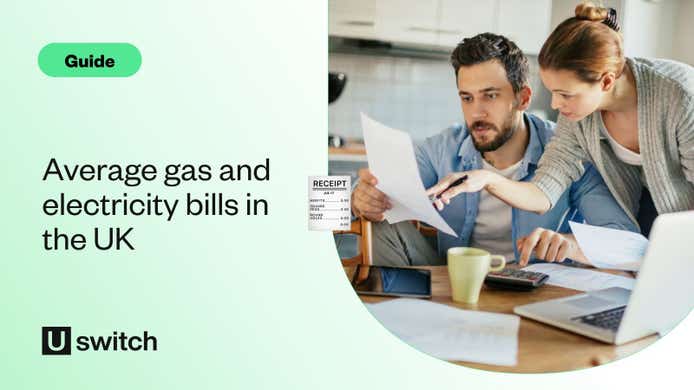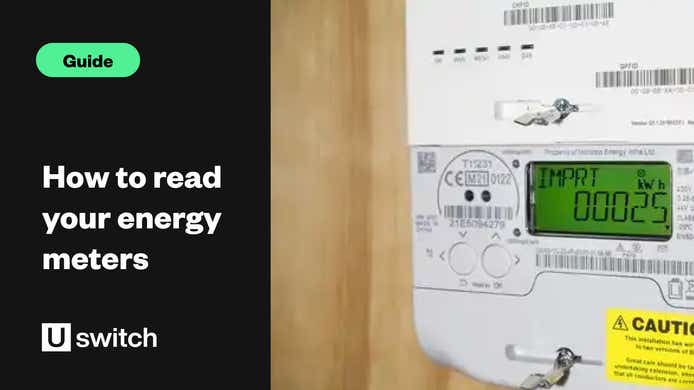Compare electricity-only energy deals
Does your property use electricity but not gas? Enter your postcode below to compare electricity-only deals and providers in seconds with Uswitch - get started below.

What does electricity-only mean?
While every home uses electricity for lighting, some homes also use it for heating as they don't have access to gas. Alternatively, some homes might prefer to get their electricity and gas from two different suppliers, which can sometimes work out cheaper. If you want to do this, you'll need to make sure you only compare electricity-only deals when you're looking to switch.
Most energy suppliers offer electricity-only deals. Enter your postcode above to see the electricity tariffs that are currently available.
How do I switch to a cheap electricity deal?
To start your search for a cheap electricity deal, you’ll need to tell us two things.
Your address
Some electricity-only deals are region-specific so we’ll use your address to search for the cheapest electricity supplier for you.
Your usage details
We can estimate based on the size of your home but, for the most accurate results, enter your electricity consumption in kWh.
Once you’ve chosen your new cheap electricity plan, we’ll take care of the rest. You don’t have to let your current supplier know you’re switching, as we’ll put your old and new suppliers in touch to arrange a switchover date.
Suppliers that are part of the Energy Switch Guarantee should complete your electricity switch within five days.
How do I find the cheapest electricity supplier?
There isn’t one single cheap electricity supplier for everyone. The cheapest electricity deal for you will depend on your consumption levels, the type of meter you have (standard, prepayment or smart meter), what type of tariff you’d prefer (fixed or variable), and whether you’d like your electricity to be renewable.
- Make sure you compare electricity prices regularly to make sure you’re on the best deal
- Try to have a recent bill or annual statement to hand so you can compare electricity prices tailored to your usage
- If you use both gas and electricity in your home, be sure to compare electricity prices alongside dual fuel energy deals. You might find that a dual fuel tariff works out cheaper for you.
If you haven’t switched energy in a while, it’s likely you’re on your supplier’s standard variable tariff, which is typically the most expensive type of plan. The cheapest electricity tariffs can often be found by switching to a fixed deal. You might not even need to switch away from your supplier to get a better deal - run a comparison to find the cheapest electricity tariff on offer from your supplier.
If you only use electricity in your home, enter your details and we’ll show you the cheapest electricity deals we can switch you to today. If you use both gas and electricity in your home we’ll automatically show you dual fuel deals – but if you want to compare electricity prices on their own, simply select ‘show me electricity deals’ on your results page.

Why should I switch electricity supplier?
If you haven’t switched to a cheaper electricity plan in the past year or two, or if you’ve never switched, it’s likely you’re on your supplier’s default or standard variable tariff.
The cheapest electricity tariffs are often fixed plans, which offer a cheap introductory rate for new customers. Even if you previously signed up for a fixed electricity plan, this is only for a limited time and your supplier will usually move you away from your cheap electricity tariff onto a standard variable tariff after the fixed period is over (often 12-24 months). Around half of UK households are on these tariffs and, unfortunately, they’re often the most expensive type of plan available. The only way to change to a cheaper electricity tariff is to switch - either by switching your electricity tariff or by changing electricity supplier entirely.
While the main reason most people switch is to get cheaper electricity, there are other reasons. Some people value customer service above monetary savings and others want to sign up for a green energy plan.
“While we use less electricity during the summer than we do during the winter, it’s still important to make sure you’re not spending more than you need to. Run an energy comparison to see if any deals are right for you. If not, take a look at our advice on how to use less electricity to keep bills as low as possible.”
| Electricity costs (1 April to 30 June 2025) | |
|---|---|
| Unit rate | 27.03p per kWh |
| Standing charge | 53.80p per day |
What is the average cost of electricity per kWh?
The actual cost of electricity per kWh for you will depend on how much the supplier is charging for your particular electricity tariff and where you live. However, you can see the average unit rate and standing charge under the energy price cap here.
| Number of bedrooms | Electricity usage (kWh) | |
|---|---|---|
| Low usage | 1-2 | 1,800 |
| Medium usage | 3-4 | 2,700 |
| High usage | 5+ | 4,100 |
How much electricity does an average home use?
Your home’s size and the number of people living in it will naturally affect how much electricity you use. Ofgem defines the average home as using 2,700 kWh of electricity per year, though it’s very unlikely that any home uses exactly that amount of electricity. You can see Ofgem’s other average usage figures for different home sizes here.
Will switching electricity supplier lead to an interruption in my supply?
No. Your new cheap electricity supplier will continue to use the same wires, pipes and meters that you currently use (unless you’ve arranged for them to install a smart meter). Switching to a cheap electricity supplier isn’t about getting a physically different power supply – the only thing that changes is that you’ll get cheaper electricity bills and they’re issued by a different supplier.
Your new electricity supplier will also contact your existing supplier to arrange the transfer to make sure there is no disruption to your service.
Does cheap electricity mean poor customer service?
No, switching to a cheap electricity tariff doesn’t necessarily mean you’re compromising on customer service. When you compare electricity prices with Uswitch we’ll show you each supplier’s customer satisfaction rating on the ‘plan info’ page. These are based on real customer reviews so you can choose the best electricity deal based on customer service as well as price.
You can also check out our energy awards to decide whether to switch to a supplier with the cheapest electricity tariff for you or one with great customer reviews – often these are the same thing.
Which household appliances use the most electricity?
Household appliances that use the most electricity tend to be things like tumble dryers, electric showers and air conditioning units. Appliances like fridges and freezers will also contribute a lot to annual electricity costs but, as they always have to be on, those aren’t costs that can be cut. Appliances like the others listed here, though, can be used less to help save energy.
Find out more in our guide about the cost of using different household appliances.
How do I save on my electricity bill?
Customers can identify ways to spend less on electricity if they engage with their energy and use a smart meter and an in-home display or the Uswitch app.
See three easy tips below - for over 100 more energy-saving tips covering areas all over the home, check out our guide.
Cut tumble dryer use
Tumble dryers are notorious energy-guzzlers. Reducing your usage could save £45 per year.
Take shorter showers
Use energy-efficient lightbulbs
These last longer and cost less to have on, so you could save up to £4 per bulb per year.
Electricity-only energy guides
Looking for a different type of energy?

Gas-only energy deals

Dual fuel energy deals

Green energy deals




